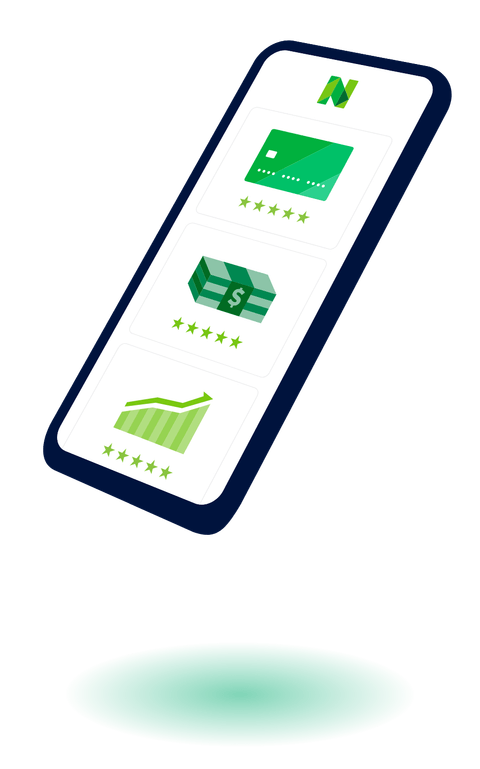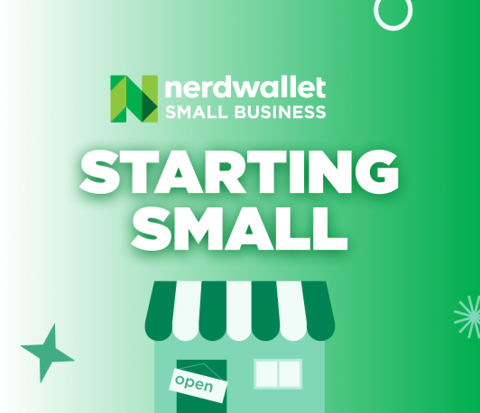How to Start a Business in 15 Steps
Starting a business requires planning, patience and a lot of paperwork. Here's how to start a business, step by step.
Many, or all, of the products featured on this page are from our advertising partners who compensate us when you take certain actions on our website or click to take an action on their website. However, this does not influence our evaluations. Our opinions are our own. Here is a list of our partners and here's how we make money.
Starting a business takes research, smarts and self-confidence — and a measure of fearlessness. You may already be asking yourself: How can I start my own business with no money? What's the right equipment? Am I getting the best advice?
Here are the essential steps on how to start a business, from choosing the right business idea, creating a solid business plan and structuring your company to opening a business bank account and choosing the right accounting software.
1. Find the right opportunity
What business should you start? It depends on your expertise, plus how much time and money you’re able to invest. Some small-business ideas can be launched from home with little overhead, and e-commerce and remote businesses have become increasingly common in the wake of the COVID-19 pandemic.
As you narrow your scope, you also want to be sure that your idea can actually make money. If you’re not sure what kind of business you want to run, use these lists to get the wheels turning:
2. Write a business plan
A strong business plan can help you prepare for every aspect of your business. Plus, you’ll need one to present to potential investors and lenders. This document should include details of the products or services you plan to offer, how you plan to make money, who you need on your team and more.
You’ll also want to include detailed financial projections, budgets and thorough explanations of how you plan to spend investor dollars or loans. Since cash flow projections will fluctuate as you adjust projected income and expenses, it helps to think of the plan’s financials as a living, changing document.
Ultimately, your business plan will help you chart a course for your business, anticipate potential roadblocks and work out how to overcome them — and will likely go through multiple iterations before your idea comes to fruition. Industry colleagues and accountants may be able to provide valuable feedback on how realistic your projections look and point out any overlooked costs.
3. Choose a business structure
The legal structure of your business can affect everything from your taxes to what you're liable for. For example, there’s no legal distinction between a sole proprietorship and its owner. Limited liability companies (LLCs) and their owners, however, are considered separate entities by law, which can provide more personal asset protection.
Talking with a tax professional can help you choose the right business structure for you. And you can change your structure as your business grows.
4. Get a federal tax ID
Getting an employer identification number (EIN) is necessary for most businesses to file taxes, open bank accounts and perform other essential tasks. Even if you don’t have employees, there are benefits to getting an EIN. It’s free to apply and the online application only takes a few minutes.
Smart money moves for your business
Grow your small business with tailored insights, recommendations, and expert content.

5. Apply for licenses and permits
In general, restaurants need health inspections and liquor licenses. Hair stylists need cosmetology licenses. Your city may require you to apply for a business license regardless of what field you’re in. And if you’re renovating a space to sell products or perform services, you may need to ask local officials for a zoning change.
Set aside time early on to find out what licenses and permits you need before you can open your doors. While you don’t typically need a lawyer to apply for a business license, they can help you navigate the process and review other documents, like lease agreements or loans, before you sign them. Industry associations, city officials who work on economic development issues and local business associations, like your Chamber of Commerce, may be able to offer advice, too.
6. Open a business bank account
Keeping your business and personal finances separate is key to managing your business finances. It’s standard bookkeeping hygiene and makes it easier to deduct business expenses come tax time. Opening a business bank account is easy and often free.

7. Understand your startup financing options
Most businesses need a little capital to get started. However, the majority of business loans are not available to businesses that have been operating for less than six months, and most online lenders prefer at least a year in business. Startups should consider alternative financing options, or try to leverage other strengths of their business, such as strong credit or collateral. If your business does qualify for a loan, be sure to pay attention to interest rates, potential prepayment fees and personal liability terms.
Many business owners rely on their own savings to get started. You can also look into crowdfunding, personal loans, business grants and more. High-growth-potential startups may also be eligible for equity financing, which gives partial ownership, or equity, to investors in exchange for capital.
8. Get a business credit card
Business credit cards can also be used as a short-term financing solution to help you purchase necessary supplies and pay bills while cash flow is still shaky. Just be sure to spend within your limit and pay off your balance in full each month so you don’t get into a cycle of debt. Startup financing aside, business credit cards also make it easier to keep business and personal finances separate. As an added bonus, you can also earn rewards, such as cash back, on the money you spend.
Usually, you can qualify for a business credit card based on your personal credit score.
9. Choose the right accounting software
It’s essential that you keep records that show how much revenue you’re bringing in and how much you’re spending. Accounting software helps you track and analyze these numbers by generating reports and recording sales trends — and there are even some free options.
As your business grows, you may want to start working with a bookkeeper. This person can help ensure your records are complete and accurate, which makes it easier to file your taxes, apply for financing and more.
Subscribe for grant opportunities, product recommendations and no-nonsense advice from the Nerds.
SUBSCRIBE FOR FREE 
10. Prepare to pay your taxes
You'll have some new tax responsibilities as a business owner — including, potentially, the need to pay taxes throughout the year, not just during tax season. But you'll probably discover some new tax breaks, too.
If you're self-employed and making quarterly tax payments, set money aside for those payments ahead of time.
🎤 Experts say: “Whenever possible, you want to be disciplined enough to not have those funds in your hands.”
- Emanuel Rivero, senior director of the Hispanic Centers for Financial Excellence at the financial counseling nonprofit Money Management International, speaking to NerdWallet about setting funds aside for taxes
Filing taxes can be complex, especially as a small-business owner. Developing a relationship with a tax professional early on can help set you up for success, and they can be a trusted adviser to your business later on.
11. Protect yourself with business insurance
It's important to protect your business and your personal assets, and business insurance exists to do just that. NerdWallet recommends that every business carry general liability insurance in case of legal claims.
You may also need insurance to comply with a contract, like to set up a booth at an event or work as a subcontractor on a larger project.
12. Establish your online presence
An online presence is critical for almost every business — especially if you want to sell products online. Setting up a website and social media profiles early on, even if they’re simple, can help you start developing relationships with potential customers right away.
Here’s what you need to know to start your business website:
13. Set up a payments system
If your business takes credit and debit cards, you'll likely need a payment processor and point-of-sale (POS) system. Lots of POS system providers double as processing companies, which can make the decision-making process simple. Remember to consider upfront hardware costs for card readers or POS registers, monthly POS software fees and processing fees. Online payments typically have higher processing fees than in-person payments, so be sure to consider the full range of fees when choosing your provider.
14. Hire employees
You may not need to hire employees right away — and some small-business owners prefer to remain solopreneurs throughout the life of their business. But if you do choose to hire, you’ll probably need workers’ compensation insurance, payroll software and more. Here’s what goes into hiring your first employees.
15. Get financing to grow your business
Once you’ve been in business for six to 12 months, you may start qualifying for business loans. Financing can help your business grow and expand — by buying equipment, renovating an office or expanding your inventory, for instance — or float you through a slow season while you prepare for increased future revenue.
Here’s what you need to know about business loans, lines of credit and other financing options.
Article sources
NerdWallet writers are subject matter authorities who use primary,
trustworthy sources to inform their work, including peer-reviewed
studies, government websites, academic research and interviews with
industry experts. All content is fact-checked for accuracy, timeliness
and relevance. You can learn more about NerdWallet's high
standards for journalism by reading our
editorial guidelines.
Starting Small: A newsletter to get your business off the ground
Subscribe for grant opportunities, product recommendations and no-nonsense advice from the Nerds. Related articles









